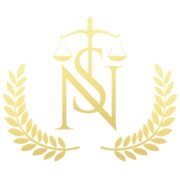Best Renewable & Alternative Energy Lawyers in Cebu City
Share your needs with us, get contacted by law firms.
Free. Takes 2 min.
List of the best lawyers in Cebu City, Philippines
About Renewable & Alternative Energy Law in Cebu City, Philippines
Renewable and alternative energy law in Cebu City, Philippines, covers all legal matters concerning the development, generation, distribution, and use of energy derived from natural sources that replenish themselves, such as solar, wind, hydro, biomass, and geothermal energy. The country has been actively pushing for the shift to cleaner energy sources pursuant to national policies and global commitments to lessen dependence on fossil fuels and reduce carbon emissions. Cebu City, as a rapidly developing urban hub in the Visayas, plays a significant role in these efforts by encouraging both private and public investment in sustainable energy projects. The law covers matters from compliance with national policies down to local regulations on setting up and operating renewable energy facilities.
Why You May Need a Lawyer
There are several situations where individuals, companies, or communities may need legal assistance when dealing with renewable and alternative energy matters in Cebu City:
- Navigating the permit and licensing process for installing renewable energy systems (such as rooftop solar panels)
- Drafting and reviewing contracts for energy supply or project development
- Understanding incentives and tax breaks under the law, such as exemptions or preferential rates
- Ensuring compliance with local zoning ordinances and national regulations
- Resolving disputes related to power purchase agreements, land use, or community benefits
- Protecting intellectual property for energy technology innovations
- Handling due diligence in mergers, acquisitions, or project financing
- Appealing decisions of regulatory agencies, such as denied permits or licenses
- Advising on environmental regulations and impact assessments
- Dealing with right-of-way and access concerns for energy infrastructure
Local Laws Overview
Cebu City follows both national and local laws regarding renewable and alternative energy. Key national legislation includes the Renewable Energy Act of 2008 (Republic Act No. 9513), which aims to promote development, utilization, and commercialization of renewable energy sources. This law provides incentives such as income tax holidays, zero percent VAT rates, and duty-free importation of machinery and equipment.
Locally, Cebu City has ordinances and land use plans that impact where and how renewable energy projects can be established. The Cebu City government supports renewable energy through its local climate change and energy programs, often requiring compliance with zoning laws, community consultation requirements, and environmental safeguards. Building owners might need additional permits from local agencies, as well as compliance with the Department of Energy (DOE) and the Energy Regulatory Commission (ERC) standards.
Anyone planning to engage in renewable or alternative energy projects in Cebu City must know both the local ordinances and the interplay with national policies to ensure seamless implementation and avoid legal complications.
Frequently Asked Questions
What is the Renewable Energy Act of 2008 and how does it affect Cebu City?
The Renewable Energy Act of 2008 is a national law that promotes the use and development of renewable energy sources by offering incentives and creating a legal framework for the industry. Cebu City must follow this law, which encourages local investment in renewable projects and provides benefits to qualifying entities.
Do I need a permit to install solar panels on my home or business in Cebu City?
Yes, installing solar panels typically requires permits from both national agencies (like DOE) and local government units. You may need building permits, electrical permits, and clearances from barangay or city offices.
Are there financial incentives for renewable energy projects in Cebu City?
Yes, under the Renewable Energy Act, incentives like tax holidays, zero VAT, and duty-free importation of renewable energy equipment may be granted. Local incentives may also apply depending on Cebu City ordinances.
How can I participate in net metering in Cebu City?
Net metering allows solar panel owners to sell excess electricity back to the utility grid. Cebu City follows rules set by the ERC, so you must coordinate with your electric utility and comply with application requirements.
What are the common challenges in starting a renewable energy project in Cebu City?
Common challenges include securing permits, ensuring compliance with both national and local requirements, access to financing, community acceptance, and navigating power purchase agreements with utilities.
Are there restrictions on the types of renewable energy projects allowed in urban areas like Cebu City?
Certain types of projects, such as large-scale wind farms or hydroelectric plants, may face restrictions due to land use zoning, noise, and community impact. Rooftop solar and small-scale systems are generally more feasible in urban settings.
Who regulates renewable energy projects in Cebu City?
Regulation is shared among the DOE, ERC, local government units, and, in some cases, environmental agencies such as the DENR. Coordination with all relevant bodies is necessary.
Can businesses selling or distributing renewable energy products operate freely in Cebu City?
Businesses must comply with business registration, importation, and product standards, as well as any special permits for energy equipment. Consultation with legal counsel is suggested to avoid violations.
What environmental requirements must be met for renewable energy projects?
Projects that may affect the environment require environmental compliance certificates or similar approvals from the DENR, as well as adherence to Cebu City’s specific sanitation and safety ordinances.
How can local communities or homeowners associations benefit from renewable energy laws?
Residents and associations can group together to access incentives, participate in government-supported projects, or enter into power agreements to reduce costs. Legal advice ensures all agreements and compliance matters are properly managed.
Additional Resources
- Department of Energy (DOE) Visayas Field Office - For guidance on permits and regulations
- Energy Regulatory Commission (ERC) - For net metering and industry guidelines
- Department of Environment and Natural Resources (DENR) Region VII - For environmental clearances and matters
- Cebu City Environment and Natural Resources Office (CCENRO) - For local permits and compliance
- Philippine Solar and Storage Energy Alliance - For industry updates and resources
- Local legal aid clinics and law offices specializing in energy law
Next Steps
If you are considering a renewable or alternative energy project in Cebu City, or face any legal issues in this field, consider the following steps:
- Research and understand the specific requirements for your type of project
- Consult with relevant national and local agencies to clarify the necessary permits and compliance standards
- Gather all required documents and prepare for permit applications
- Seek legal advice from a lawyer or law office with experience in renewable energy and local Cebu City regulations
- Participate in local forums or associations to stay updated on new laws and incentives
- Monitor the progress of your application and be ready to address queries from agencies
Legal assistance can smooth the process, help avoid costly errors, and ensure your renewable energy project in Cebu City is compliant and successful.
Lawzana helps you find the best lawyers and law firms in Cebu City through a curated and pre-screened list of qualified legal professionals. Our platform offers rankings and detailed profiles of attorneys and law firms, allowing you to compare based on practice areas, including Renewable & Alternative Energy, experience, and client feedback.
Each profile includes a description of the firm's areas of practice, client reviews, team members and partners, year of establishment, spoken languages, office locations, contact information, social media presence, and any published articles or resources. Most firms on our platform speak English and are experienced in both local and international legal matters.
Get a quote from top-rated law firms in Cebu City, Philippines — quickly, securely, and without unnecessary hassle.
Disclaimer:
The information provided on this page is for general informational purposes only and does not constitute legal advice. While we strive to ensure the accuracy and relevance of the content, legal information may change over time, and interpretations of the law can vary. You should always consult with a qualified legal professional for advice specific to your situation.
We disclaim all liability for actions taken or not taken based on the content of this page. If you believe any information is incorrect or outdated, please contact us, and we will review and update it where appropriate.

















